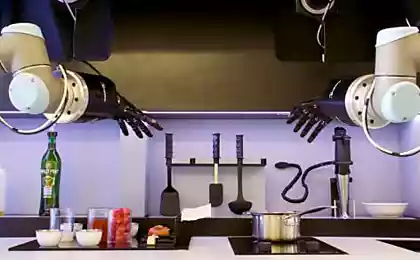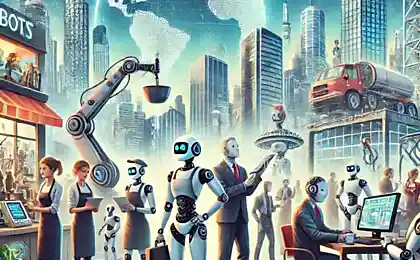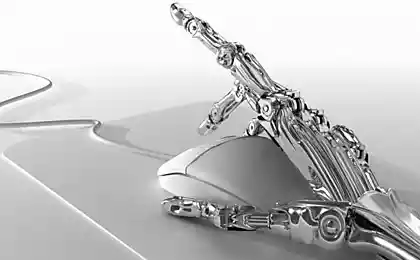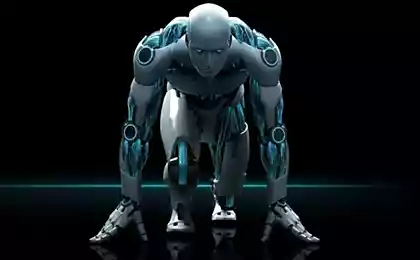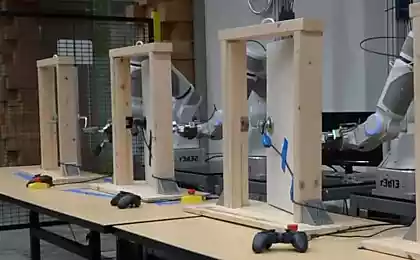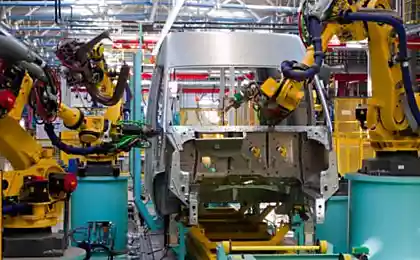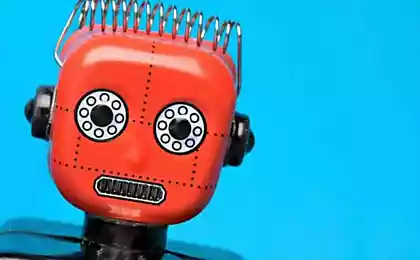992
Robots will be deprived of legal work (routine)
The last few decades, people fear that robots will take their jobs. At Oxford, in 2013, estimated that in the US 47% of all work by 2033 will carry the machine. But there is another view: to create such technologies will need highly skilled, and increase the number of robots will lead to the creation of new jobs. Machines will be able to replace only some profession or duties - those where it comes to routine work.
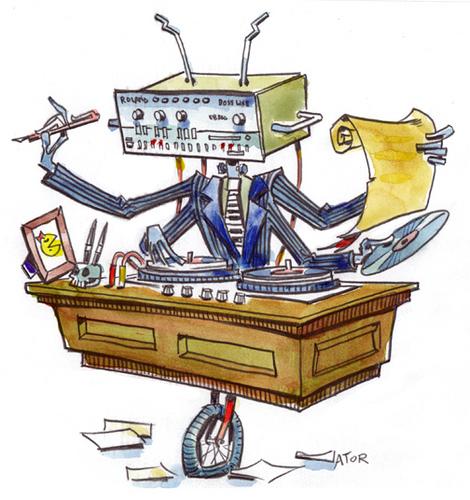
Stephen Hawking responded to a question about the possibility of "technological unemployment" as follows: "The result depends on the distribution of the benefits obtained. Everyone will be able to enjoy idle life, if by machinery newfound wealth equally divided. However, if the owners of intelligent machines will be able to avoid the reallocation, most people can be poor ».
Robots have replaced humans in many professions. They collect cars, work in warehouses. Intelligent systems write financial reports and sports coverage. In one scenario, the robots will make people's lives easier and better. If you raise taxes for the plant in which people work instead of robots, income owners will still exceed the income of owners of those companies where people work. Then taxes should be distributed among ordinary citizens to provide them some basic income. In January 2016 experiment with a basic income starts in one of the cities of the Netherlands, as researchers have found the effectiveness of the idea. Such income will allow people to work less, not work at all, or do just the thing to be nice to them the most.
According to прогнозу Jomati Consultants, in 2030 we are waiting for the world, which has slowed population growth, increased the percentage of older people, and this has led to increased demand for legal services from older people. People will need advice on health and legal services for construction companies for the construction of hospitals, retirement investing, financial and regulatory activities on the theme of demographic changes. The world is waiting for a fight between pharmaceutical companies.
The robots and artificial intelligence will dominate the practice of law in the next fifteen years and will lead to structural collapse of law firms.
Robots take away the jobs of lawyers, but it will concern mainly junior staff. The existing system is already helping lawyers and lawyers to find the necessary documents, sparing them from routine work. In the future, artificial intelligence will be able to cope with higher quality to the task, improving the speed and efficiency of the companies.
Robots by 2030 will be able to do the work of dozens of junior level. These systems do not get tired, do not ask for a pay rise - unless, of course, software company will not raise the price. In any case, such a system should cost less than the wages of a few "human" workers. Lawyers will have time to look for an approach to the client, his empathy.
Owners and managers of law firms in 2030 to face with the advantages of artificial intelligence. With the help of foreign investors, they will start to pour money into the latest developments in this field, the system will be available.
Harder All have private lawyers. Law firms will be less likely to involve them in the work. Young lawyers are not required to perform routine tasks, it will be difficult to find the entrance to the company for career advancement. To combat the shortage of staff the company will create a division for training, but the early stages of the economic efficiency of each new employee will tend to zero.
The report predicts an increase in the number of cities with a population of over ten million people in 2030. Five cities for top-end legal services market will be New York, London, Paris, Frankfurt and Singapore. Now global companies get half of its revenues abroad, in 2030 it will cover virtually all commercial companies.
The legal profession - one of the five office jobs , that the next fifteen to twenty years may be replaced by robots. Such a future is waiting for financial analysts and advisors, sports reporters, online merchants and employees of certain medical specialties.
Source: geektimes.ru/post/268310/

Stephen Hawking responded to a question about the possibility of "technological unemployment" as follows: "The result depends on the distribution of the benefits obtained. Everyone will be able to enjoy idle life, if by machinery newfound wealth equally divided. However, if the owners of intelligent machines will be able to avoid the reallocation, most people can be poor ».
Robots have replaced humans in many professions. They collect cars, work in warehouses. Intelligent systems write financial reports and sports coverage. In one scenario, the robots will make people's lives easier and better. If you raise taxes for the plant in which people work instead of robots, income owners will still exceed the income of owners of those companies where people work. Then taxes should be distributed among ordinary citizens to provide them some basic income. In January 2016 experiment with a basic income starts in one of the cities of the Netherlands, as researchers have found the effectiveness of the idea. Such income will allow people to work less, not work at all, or do just the thing to be nice to them the most.
According to прогнозу Jomati Consultants, in 2030 we are waiting for the world, which has slowed population growth, increased the percentage of older people, and this has led to increased demand for legal services from older people. People will need advice on health and legal services for construction companies for the construction of hospitals, retirement investing, financial and regulatory activities on the theme of demographic changes. The world is waiting for a fight between pharmaceutical companies.
The robots and artificial intelligence will dominate the practice of law in the next fifteen years and will lead to structural collapse of law firms.
Robots take away the jobs of lawyers, but it will concern mainly junior staff. The existing system is already helping lawyers and lawyers to find the necessary documents, sparing them from routine work. In the future, artificial intelligence will be able to cope with higher quality to the task, improving the speed and efficiency of the companies.
Robots by 2030 will be able to do the work of dozens of junior level. These systems do not get tired, do not ask for a pay rise - unless, of course, software company will not raise the price. In any case, such a system should cost less than the wages of a few "human" workers. Lawyers will have time to look for an approach to the client, his empathy.
Owners and managers of law firms in 2030 to face with the advantages of artificial intelligence. With the help of foreign investors, they will start to pour money into the latest developments in this field, the system will be available.
Harder All have private lawyers. Law firms will be less likely to involve them in the work. Young lawyers are not required to perform routine tasks, it will be difficult to find the entrance to the company for career advancement. To combat the shortage of staff the company will create a division for training, but the early stages of the economic efficiency of each new employee will tend to zero.
The report predicts an increase in the number of cities with a population of over ten million people in 2030. Five cities for top-end legal services market will be New York, London, Paris, Frankfurt and Singapore. Now global companies get half of its revenues abroad, in 2030 it will cover virtually all commercial companies.
The legal profession - one of the five office jobs , that the next fifteen to twenty years may be replaced by robots. Such a future is waiting for financial analysts and advisors, sports reporters, online merchants and employees of certain medical specialties.
Source: geektimes.ru/post/268310/
10 common misconceptions, often expressed with an important idom.
Yuytu Chinese lunar rover, helped gather important information about the moon
